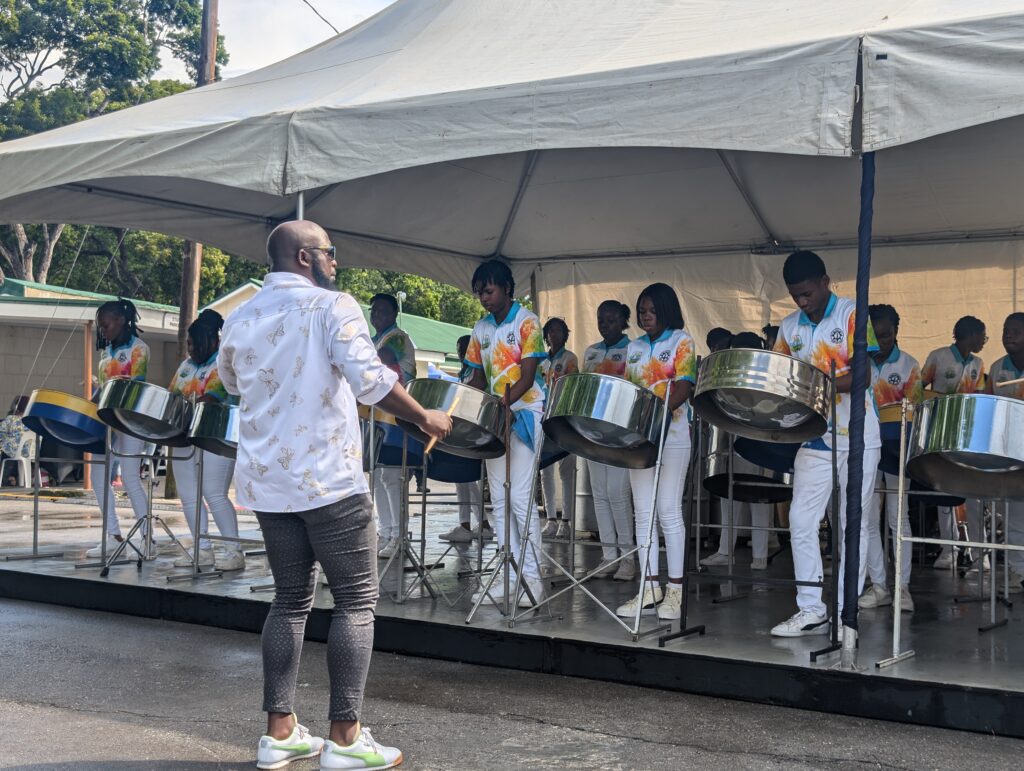Today, we published a press statement from the Queen Elizabeth Hospital (QEH) indicating that the Accident & Emergency Department (AED) continues to experience a surge in the number of patients seeking treatment. It was the second time in days that such a statement was released by the country’s major health facility. It is about the fourth or fifth time in recent weeks.
Almost every weekend, QEH disseminates correspondence that speaks to a backup of patients in the AED. And while the statement always urges Barbadians to only visit if it is “life-threatening or an emergency”, the QEH seems unable to get a handle on the situation.
The latest statement read in part: “We continue to register extended wait times in the department, especially for non-critical patients. Our Emergency Ambulance Service has also seen a significant increase in the volume of calls for medical assistance.
“In light of this, we continue our appeal to the public, if you present to the AED at this time with medical conditions which are not deemed life-threatening or an emergency, you may experience a longer than desired wait for treatment.”
The QEH’s definition of “life-threatening or an emergency” is “life, limb or sight-threatening complaints, gunshot wounds, heart attacks, active seizure activity or a patient who needs resuscitation”.
Given what is communicated in the statement, there is a raging debate on social media about people simply showing up at the AED for the slightest inconvenience. Many have accused some patients of “abusing” the department for things they deem “minor”.
However, while there may be some truth to this accusation, it is unreasonable for some to look on and make this determination given several factors.
Now more than ever, people seem to be dying suddenly. Infants, juniors, teens, adults and the elderly have experienced “sudden” death in recent times.
A 22-year-old whose dad reported to us that his daughter was not known to have any chronic illnesses, collapsed and died at her workplace. The grieving father said: “She wasn’t sick, no ailments or anything. She was healthy, comfortable and good . . . .”
We are also smack in the middle of the flu season – the time of year when more respiratory illnesses are recorded. The situation this year is so dire that it has engaged the attention of the Ministry of Health, the Barbados Association of Medical Practitioners, and pharmacists across the country.
In separate news reports, Acting Chief Medical Officer Dr Arthur Philips, President of the Barbados Association of Medical Practitioners Dr Lynda Williams and consultant pharmacist David Lewis of Lewis Drug Mart lamented a huge surge in the number of people with respiratory tract infections.
Added to these flu and flu-like illnesses, there is the dust haze which continues to affect asthmatics and many who suffer from sinusitis. The Asthma Bay is located in the QEH’s AED.
All of these factors, along with others unknown, could explain why some people may “simply show up” at the emergency department. Apart from the obvious reason that some simply cannot afford private healthcare, some are genuinely concerned about their health and just want to hear from a qualified medical practitioner to ease their anxiety.
That said, we still do not condone or agree with those who turn up at the AED with ailments such as a stumped toe, for example. The reality is that the QEH must find a permanent solution that eases the pressure off the AED. Health authorities must treat this recurring issue of a surge as an emergency. It cannot continue this way. We must not allow it.
If the AED is stretched, despite its triage system, some person who is in dire need of urgent attention may fall through the cracks if they do not present with any of the things defined as life-threatening.
Private 24-hour emergency care is offered by Sandy Crest Medical Centre and the FMH Emergency Medical Clinic operates until midnight. However, we know that if the case is critical, there is a limit to what care and treatment these facilities can offer. Therefore, patients are hurriedly referred to the AED.
An AED under pressure, in a country that has one major medical facility, needs swift treatment. We cannot afford to lose lives or compromise the delivery of healthcare because the department is full of patients overwhelming the limited staff complement.
This is not a restaurant, supermarket, service station, clothing store or hair salon. This is the place where life and death decisions are made. And while death comes to us all, every attempt to save lives should be exhausted before we reach that stage.
We give thanks for the newly-renovated AED but it is now time to get the operations right. We also acknowledge that last month the QEH said that five additional doctors had been assigned to the AED in an effort to reduce wait times for patients. But it would appear that these efforts, though commendable, simply are not enough to address the chronic issue.
The grave and concerning situation at AED has to be fixed. The powers that be cannot be content in issuing these statements, with frequency, without working in earnest to find a long-term workable solution.
Barbadians who pay taxes, who contribute to the National Insurance and Social Security Service, and who pay a 2.5 per cent Health Service Contribution expect nothing less.
The post #BTEditorial – What is the long-term fix at the QEH emergency department? appeared first on Barbados Today.

